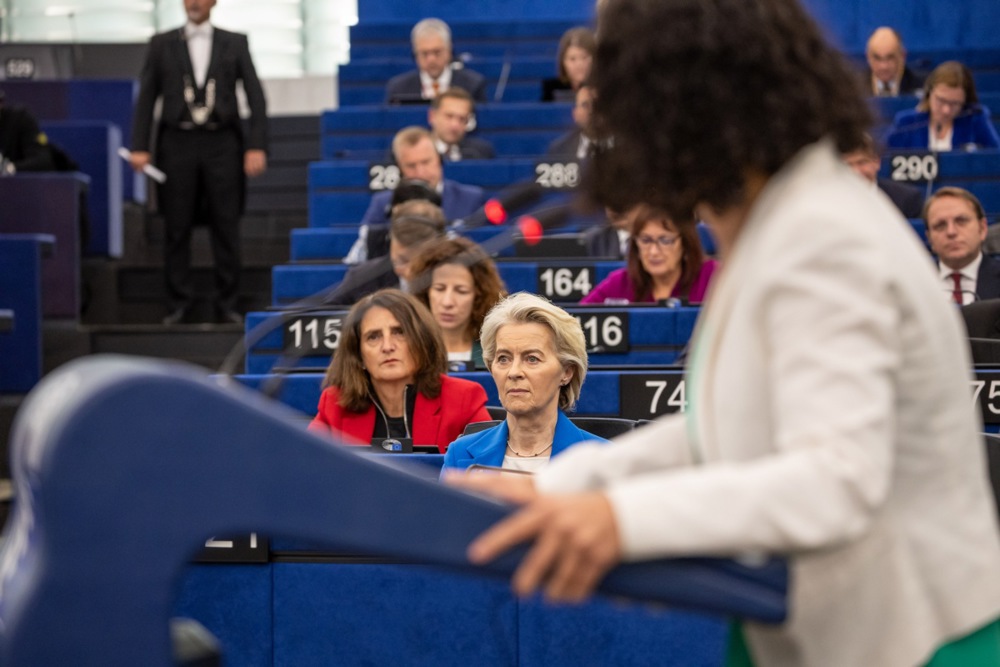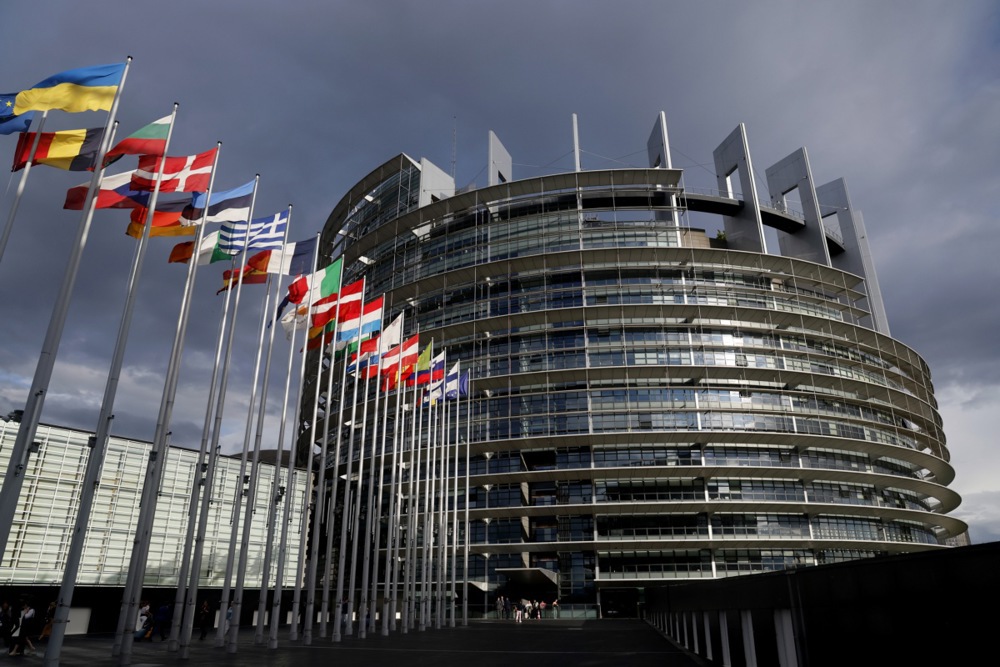The European Commission says it is simplifying reporting rules, but the industry says it is making them more complicated.
The simplification of the rules of European Union corporate responsibility seems to trigger controversy not only among MEPs and institutions, but also among the companies that had originally asked for the streamlining.
Current efforts to simplify European “green” rules would be increasing uncertainty for companies rather than easing compliance, a new study from climate think-tank E3G suggests.
This week in Strasbourg, MEPS are discussing the simplifications proposed by the European Commission, with a debate on what cuts would damage sustainability, and what would actually reduce red tape.
“Companies are not asking for black and white thinking, there is a grey solution to find, and this has not been done,” Jurei Yada, a director at E3G, told Brussels Signal today, as the study findings “suggest a major disconnect between the narrative in Brussels and what companies actually want”.
The E3G research, which polled around 2,500 business leaders, found broad support for decarbonisation and sustainability measures. Most large companies now have a department dedicated to sustainable development, whether for environmental reasons or to adapt their brand image to consumer priorities.
That came alongside concerns about how recent political efforts to reshape those rules could make red-tape “even more confusing”.
Concerns are the simplification of sustainability reporting and due diligence would affect planning and investment, the report said.
Requirements under the Corporate Sustainability Reporting Directive (CSRD) and Corporate Sustainability Due Diligence Directive (CSDDD), would in practice alter how companies plan and report their climate and social impacts. Those are key factors for investors, regulators and supply chains, the think-tank says, based on the YouGov survey.
Trine Pondal, director of Sustainability at Flying Tiger Copenhagen, told Brussels Signal today that she “supports the aim of making sustainability reporting simpler and more practical, but simplification must not become deregulation or delay”.
Many companies had expected “help to follow the rules, not to see entire sections cut away”, said Yada.
Simplifying too aggressively “leaves businesses unsure how to plan,” resulting in hesitation rather than action.
Peter Søndergaard Andersen, head of sustainability at TDC NET, Denmark’s main provider of digital infrastructure, shares confusion concerns.
“A strong set of rules has clear advantages – it improves understanding of risks, ensures transparency in the value chain, improves access to capital, and increases trust with customers and investors,” he said.
In Strasbourg, MEPS are debating and voting on the watering down of these rules. The European People’s Party (EPP), the European Parliament group of the President of the European Commission Ursula von der Leyen, is showing readiness to vote for the right-wing propositions on this topic.
Meanwhile, the Greens/European Free Alliance (EFA) group in the European Parliament argue that reopening the CSRD and CSDDD could undo progress made on corporate sustainability. It said it was mainly driven by “fears and beliefs due to lobbying of parts of the corporate sector”. It also shares concerns raised by business leaders in the survey, that simplification will not actually reduce complexity, and may instead add confusion.
Green MEP Anna Cavazzini, Chair of the Internal Market Committee (IMCO), said when the simplification package was announced earlier this year: “Ursula von der Leyen gave in to EPP party politics and lobbying pressure from big business associations.
“If a law is not even in force and then reopened without evidence, it creates planning uncertainty and chaos, at a time when politics must create reliability and stability for the economy.
“Many companies who have already set out to make their supply chains more resilient are unsettled,” she said.
Similarly, MEP Marie Toussaint, vice-chair of the Greens/EFA Group, said: “Instead of providing stability, the Commission is creating uncertainty and confusion, discouraging investors, penalising front-runners, and rewarding those who fall behind.”
These Green group concerns echo survey responses suggest a specific dynamic: Companies that — for whatever reason — want to comply with green laws, and that had sought simplification to make compliance more practical, now say the proposed simplifications are making compliance more confusing.
This means the call for simplification, typical for companies and right-wing political quarters, is not always synonymous with a desire to weaken standards. Yadasaid some corporate sustainability teams asked for clearer, more practical rules to help them implement obligations, not to see core provisions removed.
This simplification is turning into an inter-institutional issue among EU bodies, as the EC recently presented simplification in six different areas, on which the EU Council – comprising member states’ heads of state or government – agreed.
Many MEPS from various groups are resisting the suggested changes for the reasons of clarity and ecological reasons mentioned above. However, there is a tendency among various right-wing groups to support a weakening of these directives.
The EU now needs to find the “sweet spot” between meaningful reporting and practical implementation, Yada concluded.
“Simplification should help with clarity and consistency, not create fresh ambiguity,” she said.





